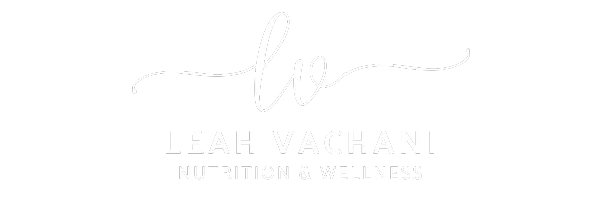New group forming: lose weight, boost energy, sleep better, and finally get results! I'll cover the cost of your devices with code 'CGM100'!

Hey there!
I'm Leah,
Certified Nutrition Coach & Menopause Specialist
If you are over 40 and fed up with all the fad diets, tired of doing all the "right things" yet not getting results, then you're in the right place. Let's work together to reclaim your sleep, mood, energy, and waistline.
TOP RESOURCES
Podcast:
Women Aging
Powerfully
Curious about unlocking the secrets to thriving through menopause? Each episode features dynamic discussions with top thought leaders in women's health, diving into crucial topics often overlooked by many health providers—nutrition, fitness, hormones, stress management, sleep and more.
This isn't just about aging gracefully; it’s about aging powerfully!
Free Guide:
The Secret to Hormone Balance is Cortisol Management
Do you feel stressed out all the time? Are you tired of feeling tired? Do you feel like you are either at the point of crying or yelling?
You are not alone, and if you're a women over 40, this is actually a common feeling! While you can’t get rid of stress altogether, you can change your lifestyle to help manage your cortisol levels, which is the first step to balancing hormones. In this guide, we’ll cover 7 habits to build your stress resiliency and get cortisol in a healthy range.
Free Guide:
Pantry Detox Guide
Is your pantry a source of NOURISHMENT or TOXICITY for your family?
The good news? I've created a simple guide that exposes the most dangerous ingredients lurking in your pantry right now.
Even better - I'll show you exactly what to swap them with so you can keep making your favorite recipes without the toxic aftermath.
The FREE Ultimate Pantry Detox Guide!
You need this guide to find and remove the hidden toxins and detrimental ingredients that are wreaking havoc on your family's health right now.
recent posts

Stress Management Techniques; How to Build Your Stress Reduction Toolkit
Do you want to age faster? Or feel like crap all the time? How about weight gain, do you want some of that?
Of course you don't!
Ok, so let's build you a toolkit to supply you with various stress management techniques. Practice these techniques daily and you can avoid those nasty side effects of being overstressed.
Stress has been called the "health epidemic of the 21st century" by the World Health Organization. I'm going to outline techniques for you to avoid being another victim to chronic stress and the unwanted and debilitating side effects that it causes.
The side effects of stress you want to avoid

[sc name="Affiliate Disclosure"]
Accelerated aging and skin issues
Your skin is your largest organ, so you better believe it's not going to age well when you are stressed out! Stress causes nutrient depletion, inflammation, and hormone imbalances.
Chronic skin issues like rashes, rosacea, psoriasis, hives, vitiligo, and eczema, can both cause you stress AND be triggered by stress! When we are stressed out our body cycles much faster through nutrients leaving less available for the health of our skin. Less nutrition can lead to premature aging and wrinkles. And...wait, did you just frown about that? Tsk tsk tsk.
Weight gain from stress
Many people have heard that a correlation exists between stress and weight gain but don't quite understand how it all plays out. This is how you gain weight from stress.
Let's say you get stressed out about a deadline at work, or an argument you had with your spouse, or because you are stuck in traffic and will be late picking your child up. While this stressor is mental or emotional, your body doesn't distinguish the difference between a physical stressor and an emotional or mental stress. We are still very primal by nature and this is how our bodies are programmed. The body’s stress mechanisms are not adapted to 21st-century stressors! So, your body physically reacts like there is a tiger that you need to fight or to run from.
Your body then breaks down muscle to produce sugar for energy to run from or fight said tiger. The body needs quick energy in these situations. But….your stress was mental or emotional, not physical. There was no tiger. So how does your body get rid of the excess blood sugar? It dumps it as fat in your midsection as “belly fat”. Over time, this physical reaction to non-physical stressors can cause weight gain.
Always being “on” will absolutely inhibit your ability to lose weight.

Always feeling tired
When your body is constantly getting ready to fight or run from a tiger you are continuously raising your adrenaline and then experiencing the crash afterward. This is like when you down a pot of coffee in a short amount of time and then feel the caffeine-crash that follows.
Furthermore, when you are experiencing stress, your muscles are tense and your brain is put on high alert. Also super taxing for the body.
When you feel chronically fatigued, your body is making you feel tired so that you will be forced to take a chill pill. It's a cry for help! If you ignore your body screaming at you to slow down, the end result won’t be good. Chronic health issues will likely be in your future.
How to change your habits to reduce stress
You could address only one aspect of your life, like diet or exercise, with the hope that small changes make a difference. After all, they say baby steps are the way to make lasting change. This might work well if your stress levels are moderate to low.
However, an effective stress management and reduction strategy for someone who is experiencing a fair amount of stress (I’m thinking this applies to most), the approach must ultimately be holistic. Meaning, you will have to address more than just diet or exercise. Don’t forget about the spaces in between. Let's talk about all the tools you can add to your toolkit.
[thrive_leads id='6259']
5 types of tools for stress management

Exercise/Movement
“Sitting is the new smoking” is a common quote you hear these days. That’s because there are so many detrimental health effects to lack of movement and exercise.
When we move around and exercise we release endorphins, the happy hormone. The immune system gets a boost from moving your lymph around and exercise also helps you sleep better.
It really doesn’t matter what kind of exercise you choose to add to your toolbox, the important part is that you move each day. Some like yoga, some like running, and even walking can be a great source of exercise.
Personally, I enjoy a mixture of swimming, running, walking and yoga. I rarely have time to attend a yoga class in a studio but I can always squeeze in an online yoga class at home. You can read how much I love using online yoga streaming here.
WOW! Get 3 months of MyYogaWorks for ONLY $3!
Write down one or more types of exercise or movement routines you can do daily.

Yoga/Meditation/Breathing Exercises
Take a slow, deep breath that fills your belly and diaphragm. Exhale slowly to the count of 8. Repeat 4 more times.
Congratulations! You just calmed your nervous system!
Guess what happens when you breathe more deeply? You get more oxygen, you calm your nervous system, you lower blood pressure and you release toxins. We all need to breath more. By the way, it’s also free and is available anytime, anywhere!
When you are feeling stressed, you start to breathe more shallow and short. To get out of this detrimental state, you have to reset your body in order to get back to a calming and nourishing deep, slow breathing state. There are several ways you can do this.
Do the breathing exercise I just sprung on you, but do it for more than just 5 breaths. Or, there are many more types of breathing exercises you could learn as well. You could start with these three.
Meditate - you can use an app like Headspace or Calm if you would like some guidance. Alternatively, you can simply go to a quiet place and be present in the moment with your own style of meditation. Even walking in nature can be a form of meditation. Basically, turn yourself off from email, alerts, phone calls, multitasking, and everything else that takes you away from experiencing what is happening to your body right now, physically, mentally, and emotionally.
Yoga! Yoga is a moving meditation. There are those who find it really difficult to sit still and meditate. If that sounds a lot like what you have experienced, perhaps you should try some yoga. Even as a beginner, you can reap similar benefits as one who has been practicing for a while. Take a class at a studio or learn online while streaming classes in the comfort of your own home or when traveling with MyYogarworks. I love the ease of choosing an online class that fits my schedule. Sometimes it’s a 10-minute class, and sometimes it’s 60 minutes.
Learn yoga from anywhere with online classes. At home or while you travel, all you need is wifi or data streaming from your device and a screen to stream it on.
WOW! My Yogaworks is currently offering a special deal: Get 3 months of MyYogaWorks for ONLY $3!
Write down how you are going to accomplish a daily routine of meditation or breathwork.
[thrive_leads id='6259']

Being in Nature/Being Social
Remember the last time you were outside spending time in nature? Not walking from house to car or taking the garbage out. I’m talking about purposefully being around greenery and things that are alive and not human!
I bet you felt relaxed, more carefree and a little bit lighter. Nature does that, it’s like magic.
If you don’t like the term magic then let’s talk about how it is scientifically proven that being in nature reduces stress. There were a group of studies showing that participants’ energy and vitality increased with the amount of time they spent outdoors.
And remember how I mentioned earlier that exercise releases endorphins, which make you feel happier? Guess what, these studies showed that if you exercise in nature you get to double dip in the feel-good benefits!
While I fully support going out in nature by yourself to reduce stress levels, you also have to cultivate a good social support network for yourself. Studies have demonstrated that social isolation and loneliness are associated with a greater risk of poor mental health and poor cardiovascular health, as well as other health problems.
Find people who you can be yourself with, lean on when you need a shoulder, and who really feed your soul. Stay away from what society now calls “energy vampires”, or people who suck your energy away. Be mindful of how you feel when you spend time with people and nurture the relationships that make you feel happier, more alive and fulfilled.
Now, write down how you can engage with nature or seek out social interaction every day. Remember, it’s not about quantity of time, it’s about the quality of time.
Read my story about needing social connection here.

Anti-Inflammatory Foods
Before we talk about the foods you should eat, let's talk about what foods to avoid. The following pro-inflammatory foods will only cause more stress on your body. You should try to avoid these foods as much as possible.
Pro-Inflammatory foods
Sugar
Vegetable oils (canola, corn, sunflower, safflower, and soybean)
Fried foods (french fries, egg rolls, chicken nuggets, fried chicken, fried calamari, pork rinds, chicken fried steak, etc)
Refined flours (white bread, crackers, pizza, pretzels, tortillas, cereals, pasta bagels, rolls, baked goods, croissants, doughnuts, etc)
Dairy (from conventional sources)
Artificial sweeteners
Conventional grain-fed meats
Excess alcohol
Trans fats (margarine/shortening; baked goods like doughnuts, cookies, and muffins; non-dairy coffee creamers; frozen pizza; frosting)
Fast foods
Commercial condiments (most grocery-store mayos, ketchup, and salad dressings are loaded with high-fructose corn syrup, artificial flavors, harmful emulsifiers, seed oils, and other inflammatory agents.)
Now that you know foods to avoid, let's talk about what you are going to add into your diet! These foods will help reduce inflammation, therefore, reducing stress in the body. The more of these foods you can incorporate on a daily basis the better you will feel. It's that easy.
Anti-Inflammatory Foods
Omega 3 rich fatty fish (Salmon, Sardines, Herring, Mackerel, Anchovies)
Almonds
Avocados
Broccoli
Blueberries
Carrots
Kale
Extra Virgin Olive oil
Oranges
Spinach
Swiss chard
Walnuts
Bok choy
Celery
Beets
Bone Broth
Coconut oil
Chia and flaxseeds
Turmeric
Ginger
Green tea
Mushrooms
Cherries
[thrive_leads id='6259']

Supplements and Herbs
The list of nutritional supplements and herbal remedies to support a healthy response to stress and improve stress reduction is long and exhausting. I am going to highlight my 5 favorites to keep this post from going on another 2,000 words!
Magnesium
Magnesium is a mineral that everyone needs and unfortunately, most people are deficient in. The benefits to magnesium are lengthy and the risks so minimal it basically screams ‘take me’!
Here is how you can add magnesium to your daily routine:
Start with 600-800mg at night
Look for Magnesium glycinate or magnesium citrate, or if you can't swallow tablets or capsules this powder version is really nice
One side effect you can use as a barometer for whether your body is sufficient or not is that once you start supplementing with too much, your stools will loosen. (Read between the lines - magnesium is also great for constipation!)
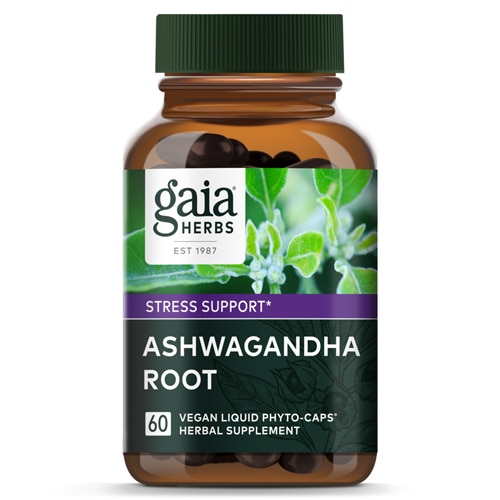
Ashwagandha
Ashwagandha is an adaptogenic herb, which are substances known to modulate your response to stress or a changing environment. Adaptogens help the body cope with external stresses such as toxins in the environment and internal stresses such as anxiety and insomnia. Doesn’t that sound great??
Ashwagandha is also known to help people strengthen their immune system after illness, chemotherapy, or surgery. It is a highly effective, evidence-based remedy for anxiety and stress—by lowering cortisol levels and mimicking the inhibitory neurotransmitter GABA. Are you having trouble sleeping due to stress? Ashwagandha is also well known to help!
How do you take it/?
Ashwagandha is classically taken as a fine powder mixed as a tea with honey and/or milk.
Or by capsule - typical recommended dose is 500 to 1,000 mg.
For people who suffer from insomnia and anxiety, having a cup of hot milk that contains a teaspoon of powdered ashwagandha or an ashwagandha capsule before bedtime is beneficial.
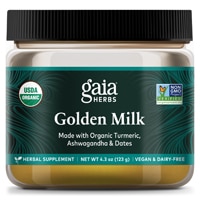
Ashwagandha Tea Recipe Ingredients:
½ teaspoon ashwagandha powder
1 cup hot water
1 teaspoon honey
Directions: Combine hot water with Ashwagandha powder and mix well. Add honey to taste. Sip and enjoy!
Ashwagandha Tonic RecipeIngredients:
1–2 teaspoons ashwagandha powder
2 cups milk
1 tablespoon raw sugar
⅛ teaspoon cardamom
Directions: Simmer 1 to 2 teaspoons powdered ashwagandha in 2 cups milk over low heat for 15 minutes. Add 1 tablespoon raw sugar and ⅛ teaspoon cardamom and stir until well mixed. Turn off heat. Drink a cup once or twice a day for a pick-me-up.
Ashwagandha tea and tonic recipes are from BanyanBotanicals.com.
Medical Caution: Always consult with your healthcare practitioner before using supplements if you have any health conditions. Ashwagandha is not recommended for women who are pregnant.
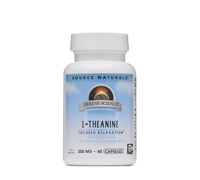
L-Theanine
You might say that L-theanine is nature’s Xanax—once the potent amino acid is consumed, studies show most people feel considerably calmer and more focused within 30 minutes.
It’s also multi-functional. When combined with caffeine, like in green tea, it helps fuel you with a nice gentle energy, without the crash and burn afterward. On the other hand, if it’s mixed with melatonin, magnesium, or other sleep-inducing substances, it can help you quiet your mind and catch a snooze.
L-Theanine kicks in just as fast as prescription chill pills (minus the side effects), usually keeping you calm for a few hours. What I mean by working fast is that, according to research, L-theanine works in as little as 30–60 minutes. It’s not something you take for a week and wonder if it is working or not.
You can ingest l-theanine in its naturally occurring form in green tea (or black tea) but the dose is low. If you want a more therapeutic dose try 50–200mg. (By contrast, a cup of green tea has less than 20mg).
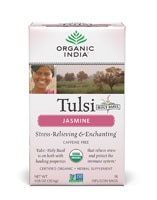
Holy Basil
Holy Basil, also known as Tulsi, is another adaptogenic herb that is as easy to take as a cup of tea. Literally. You can sit and sip and reap the benefits. I love this brand of tulsi tea.
Added bonus - Holy Basil boosts the immune system and has the power to fight bacteria in your mouth that lead to dental issues, such as cavities, plaque, tartar, and bad breath. Tulsi leaves serve as a mouth freshener because they kill the bacteria and germs hiding in your mouth. Woot woot!
When you are a breastfeeding mother, not many herbs are considered “safe” to take. But I want to let you in on a fact that needs to be known by all - Holy Basil is a galactagogue. Say what? That means it can help boost milk production! Yup! It’s one of the most postpartum-friendly adaptogens - it can help with postpartum depression and with lactation. #winwin
The recommended dose of Holy Basil is usually 500mg twice daily.
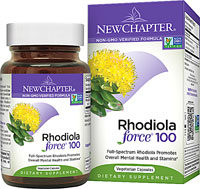
Rhodiola
If you are still reading then you have come to the holy grail of adaptogenic herbs (in my opinion). Rhodiola, also known as golden root, helps the body adapt to stress by decreasing or preventing hormonal changes tied to prolonged stress. It helps to lower the “stress hormone,” cortisol, fights depression and improves brain function, and increases energy and athletic performance while reducing mental and physical fatigue.
But the most sought-after benefit from this adaptogenic herbs is that it helps to burn belly fat! Yes! It helps your body burn stored fat more efficiently as fuel. Rhodiola’s most active compound, Rosavin, has been shown to trigger a fat-burning response.
Because it helps normalize cortisol levels, Rhodiola may also reduce cravings for unhealthy “comfort foods” and delay fat-accumulation that is tied to high cortisol levels (especially fat around the abdomen/belly). Sign me up. No more emotional-eating??
The recommended supplemental dose of Rhodiola Rosea extract (containing rosavin) is around 250mg taken 1-3 times daily. Ideally, Rhodiola should be taken about 15 minutes before meals. Higher doses should be split into two to help with absorption (such as one dose before breakfast and one before dinner). Alternatively, some people take Rhodiola as a tea.
Here are a few great herbal companies to buy from:
Oregon's Wild Harvest Rhodiola
So...which supplement will you add to your toolkit? You can safely use Magnesium and l-Theanine with any of these adaptogenic herbs, but I would only choose one herb to try at a time.
[thrive_leads id='6259']
Essential Oils

Lavender
We are better able to handle stress better when we’ve had enough sleep, and this calming oil is a common go-to for a soothing night’s rest. Simply add a drop or two of Lavender to the bottom of your feet or wrists or on your pillowcase right before going to bed. Or add to a diffuser by itself or with Frankincense.
Frankincense
When inhaled or diffused, Frankincense promotes feelings of peace, relaxation, satisfaction, and overall wellness.
Add 2-3 drops to your diffuser with lavender or apply to the bottom of your feet or chest when you feel the need to relax and balance mood.
Vetiver
Thanks to its grounding aroma, Vetiver is the perfect oil to add to your diffuser, or you can also use it topically to calm the mind. (You can also combine it with Lavender, doTERRA Serenity, to enhance the effects.)
Serenity® (doTERRA blend)
doTERRA Serenity is a unique blend of essential oils known for their ability to calm the emotions and lessen feelings of tension.
When you are feeling overwhelmed, apply two to three drops to the back of your neck or over your heart for feelings of calmness and peace.
After a long, stressful day, combine a few drops of doTERRA Serenity with Epsom salts and add to a warm bath for a renewing, relaxing experience.
To lessen feelings of tension, inhale doTERRA Serenity straight from your hands throughout the day, or place a few drops (3-6) in a diffuser nearby to create a calming atmosphere.
When you’ve had a whirlwind day, apply doTERRA Serenity to the bottoms of your (or your child's) feet at bedtime to help you wind down and relax before going to sleep.
PRO TIP: I use the Serenity capsules for nights when I am really struggling to fall asleep. It works like magic with no drowsiness or lingering side effects the next day! Get yours here.
PastTense® doTERRA Tension Blend
PastTense is a distinctive blend of essential oils known to help provide grounding and balanced emotions. Known for their soothing effects on both the mind and body, the essential oils in PastTense quickly, promote feelings of relaxation and calm emotions. Massage into shoulders, neck, and back for a cooling, soothing sensation. Add to temples and back of neck before taking a test or presenting in public. Apply to the wrists while traveling to help calm emotions.
I've put all these amazing essential oils in a cart for you. You can add or subtract as you wish, but it's all ready and waiting.
That's not all...
Talking about all the ways I use essential oils could take up an entire blog post (or more) but I use them in every facet of life. Especially when it comes to stress reduction. Learn more about the amazing benefits of essential oils here.
Your Toolkit
We have now covered the 5 main areas to address when trying to reduce your stress levels. In each of these 5 areas, you have choices to make as to what will you incorporate into your daily routine? What will you add to your personal stress reduction toolkit?
If you have read this far I am convinced that you are looking for some help in managing stress. I challenge you to build your toolkit and implement these strategies for at least 2 weeks to see what happens. What do you have to lose? You have everything to gain.
Build your toolkit using a free printable summary of the 5 types of tools and a worksheet to help you create your own personal stress reduction toolkit. Can you let me know how these stress management techniques work for you? Leave a comment below.

P.S. This post is full of information so don't forget to Pin It to reference later.
[thrive_leads id='6259']
[sc name="Medical Disclaimer"]
Ready to start getting health info + tips that will actually empower you to make changes to your health? Are you ready to start feeling amazing again??
Then sign up for emails that you will actually want to read.
How can I help you?

Free Coaching Tips with Leah
Not sure where to start?
Hop on a 10 minute call with me and I'll guide you to the program that is the best fit for you to reach your health goals! Let's chat!
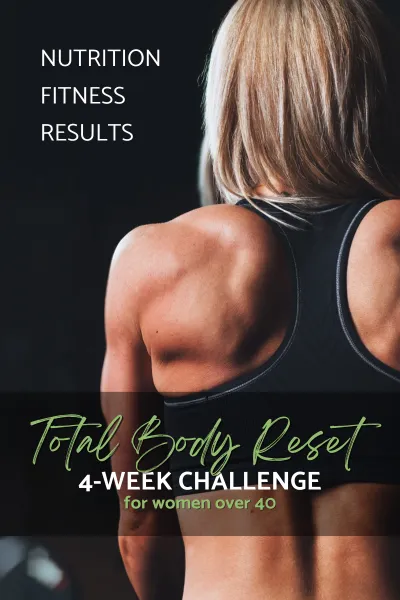
4-Week Total Body Reset Challenge
This is not another challenge that you start and don't finish! The 4-week TBR Challenge will kickstart your weight loss, bring a glow to your ski7, and help give you that boost in energy level you need to feel freaking amazing!
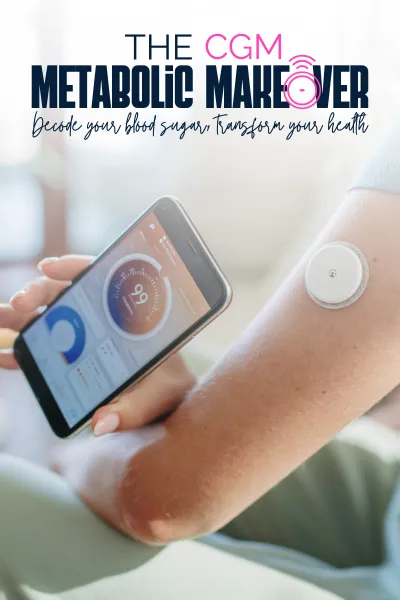
The CGM Metabolic Makeover
Stop guessing about your health! Use CGM technology to discover your perfect foods & unlock sustainable weight loss, all-day energy, better sleep & metabolic confidence. Your personalized blueprint awaits!
You’ve tried dieting a million times.
Now try something different.
What it's like to work with Leah
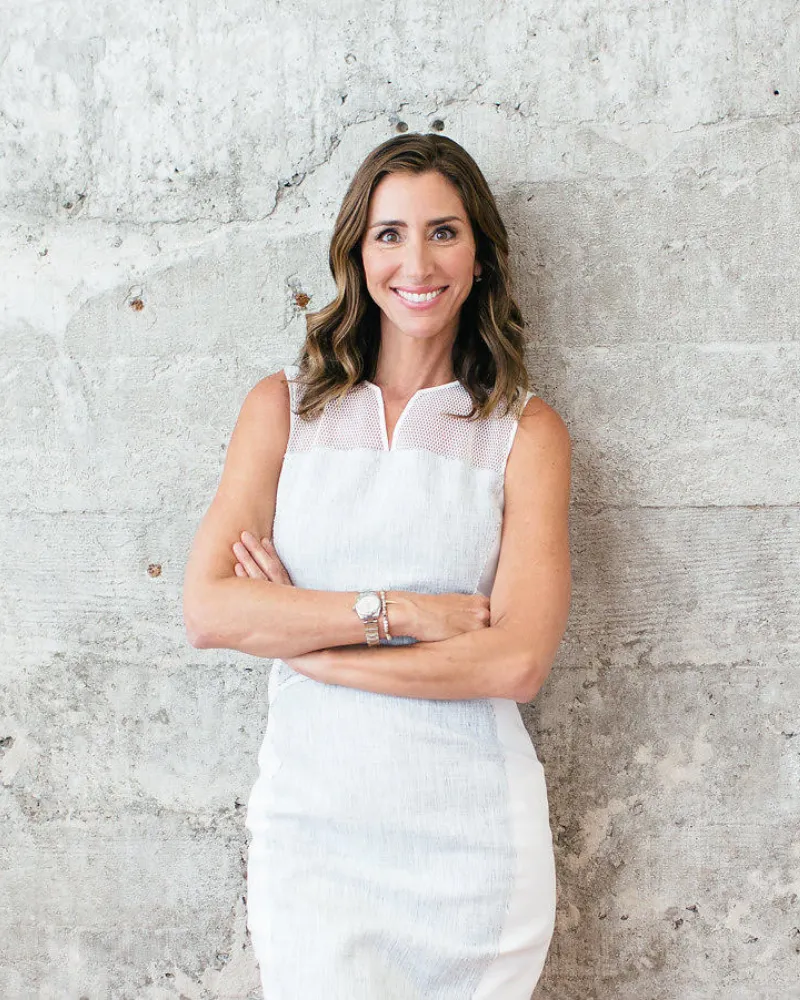
Kim Morrow
I am so much more conscious of what I am putting into my body and I actually feel really empowered and good about myself by saying no to the foods that are not good for me. At Dinner the other night, my husband and kids kept asking me to try one french fry or one bite of their dessert, and I just smiled and said 'no thank you'.

Marisa Lonic
With 20+ post partum pounds, I was looking for a program to help me. I was blown away working with Leah. I lost 9 pounds, felt less tired and formed healthy habits that are now j7st part of my new normal.

Jonelle Fernandes
My whole adult life I have struggled with eating healthy, never really feeling satisfied and giving in to very unhealthy choices. Leah is a phenomenal wealth of knowledge and support when it comes to nutrition. It is because of her programs that I am FINALLY eating healthy on a regular basis! I feel the best I’ve ever felt, I have more energy, better sleep, less inflammation, better skin, and a better mood! Not to mention, I lost 11 pounds and the weight is continuing to come off!


